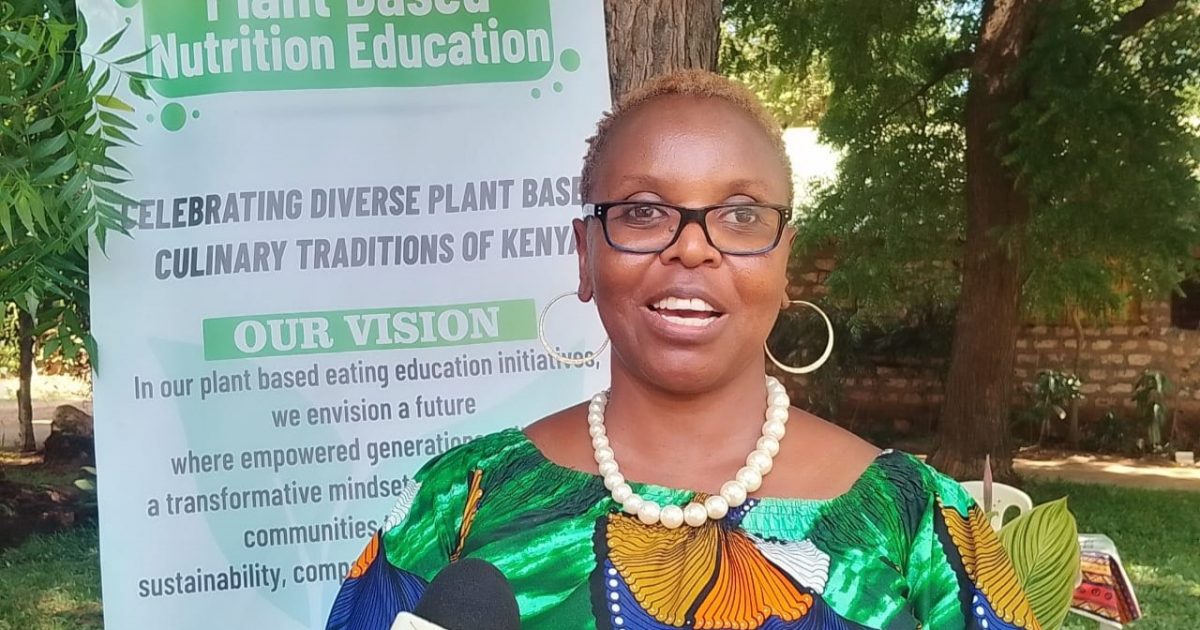As the sun dips below the horizon, casting a golden hue across the vibrant streets of Malindi, the aura in and around one of the tourist resort town’s celebrated restaurants buzzes with a new kind of excitement.
It isn’t just the anticipation of the December festivities but the dawning of a movement that promises to revive old traditions and keep non-communicable diseases like diabetes, high blood pressure, and cancer at bay.
Families gather around tables laden with colourful vegetables, fruits, and fragrant spices, signaling a plant-powered holiday that speaks to both the heart and soul.
Thrive Africa Vegan Women’s Initiative is running a campaign dubbed, “Thrive Africa Plant-Powered Holidays.” The campaign started in min-November and will run until January 3, 2025.
It advocates for plant-based diets deeply connected to African heritage, flavours, and traditions. More than just a dietary choice, it’s a celebration of compassion, sustainability, and community wellness.
The initiative also focuses on mitigating animal cruelty and fostering compassionate, sustainable choices throughout the festive season. It also aims to empower women advocates of plant-based diets across Africa by equipping them with leadership and advocacy skills.
Through physical and online engagement to share messages on plant-based recipes, cultural narratives, and holiday celebration ideas, the initiative seeks to inspire community involvement.
And research has shown that as health and ethical eating become more prominent issues worldwide, plant-based diets are gaining traction among Africans.
Virginia Ruguru, a plant-based advocate, emphasizes the benefits of plant-based diets on human health, while expressing concern over the resurgence of non-communicable diseases.
“We see increasing cases of cancer, high blood pressure, and obesity. While other factors contribute, diet plays a crucial role. Adopting a plant-based diet can reduce these cases, especially during the festive season,” she says.
Ruguru characterizes this dietary shift as a return to the practices of our ancestors, who primarily ate plant-based diets and enjoyed remarkable health and strength.
She encourages Kenyans to embrace these habits, noting that foods like vegetables, fruits, seeds, and legumes contribute to greater strength and wellness compared to meat-based diets, which can lead to an increased risk of lifestyle diseases such as heart disease, diabetes, cancer, and hypertension.
Moreover, she says adopting a plant-based diet benefits the environment and can stimulate a country’s economy, as plant-based foods are generally less expensive to grow and purchase.
Ruguru also notes that factors such as Western influence, greenhouse gases, and methane gas production contribute to ozone layer depletion, hence the need for revamping the plant-based diet campaign in Africa.
“If you look at the trend, we have a lot of influence from Western countries. Food matters are also highly politicized. We are told that our foods are second class, whereas we clearly know the benefits we get from our traditional foods,” she says.
“During this campaign, we will showcase diverse food flavours and recipes across Africa, and engage in different eating habits and cultures. The goal is to encourage people to turn to plant-based diets this festive season,” Ruguru explains.
Showcasing a variety of vegan foods, Monalissa Ng’ang’a, an advocate of plant-based diets and owner of a popular vegan restaurant, stresses the need for people to diversify their dietary behaviour to plant-based meals to reduce cases of lifestyle diseases.
“In recent times, I have seen more people, especially in Malindi, embracing vegan foods compared to past years. I urge people to continue with this spirit since vegan foods are economical, keep lifestyle diseases at bay, and it is also a way of appreciating what God has given us,” she says.
Ng’ang’a calls upon the government to support this cause by encouraging farmers to grow more indigenous food crops, including distributing free or subsidized seeds and planting materials.
“The government should unite farmers and educate them on crop diversification, and promote the planting of indigenous crops like cereals, organic vegetables, nuts, and cassavas for a healthier nation,” she adds.
By Kellian Katana and Emmanuel Masha





